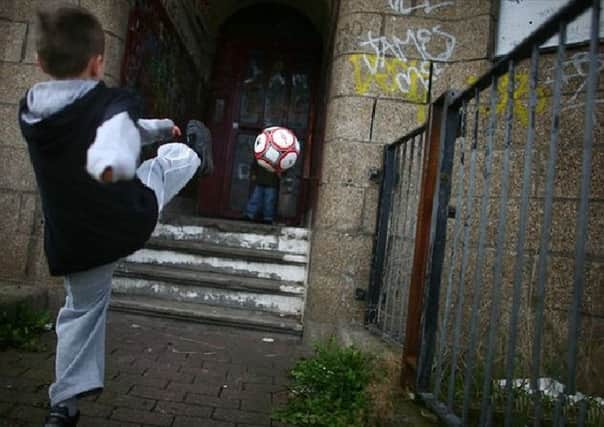Call for long-term strategy to tackle poverty


The Scottish Government statistics also showed that 220,000 children were living in poverty in 2014/15 after housing costs had been paid.
Child poverty before housing costs increased to 17 per cent but after housing costs was unchanged, reflecting the real terms decrease in housing costs for the lowest income families.
Advertisement
Hide AdAdvertisement
Hide AdAngela Constance, Communities, Social Security and Equalities Secretary described the figures as “further proof of the damaging impact of UK Government welfare changes”.
She said: “Despite spending £100 million a year tackling the negative impacts of the UK government’s welfare changes, including fully mitigating the bedroom tax, people are still living in poverty.
“We know the causes of poverty are complex. For example, increases in parental employment and decreases in the number of children living in workless households mean fewer children are living in material deprivation.
“However, two thirds of children in poverty were living in working households in 2014/15. This shows how important the living wage is to ensuring a decent standard of living for workers and their families and why we are determined to continue to promote it.”
Advertisement
Hide AdAdvertisement
Hide AdCampaign group The Poverty Alliance has welcomed measures taken to mitigate the impact of welfare reform, and help lift people out of poverty, it said much more needs to be done and that the Scottish Government should use new powers to top up child benefit and means tested benefits for working age adults.
Peter Kelly, the group’s director, said: “It is clear that too many people in Scotland are still having to make difficult choices every day as a result of living in poverty.
“The Poverty Alliance is concerned that this will be made worse following the UK’s decision to leave the EU, and the economic uncertainty that this will create. The rise in the percentage of children in poverty who live in a household where someone works is especially concerning.
“More needs to be done by both Governments to make work pays. This means further support for the Living Wage and ensuring that public money is used to create high quality, well paid jobs.”